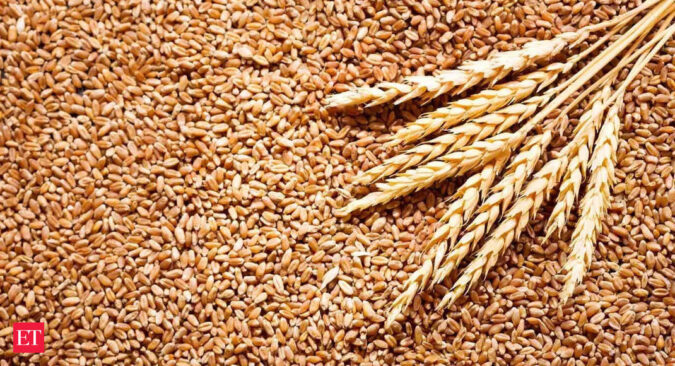Describing the consensus in adopting the document as “historical”, an official release said it was reached after deliberations on various issues centred around the agriculture sector wherein leadership of G20 developing countries was envisaged.
“We appreciate India’s initiatives for G20’s concrete deliverables – the Deccan High Level Principles on Food Security and Nutrition 2023 and 12th G20 MACS international initiative for research on millets and other ancient grains aimed to enhance global food security and nutrition,” the G20 Ministers of Agriculture said in the document.
Union Agriculture Minister Narendra Singh Tomar said the meeting was attended by the 20 member countries of the grouping, the invited countries and representatives of 10 international organisations.
He said 40 representatives expressed their views in the ministerial meeting.
While acknowledging the long-term increase in global food production to meet the needs of a growing population, the G20 Ministers of Agriculture, in the document, said they are gravely concerned by the worsening global food insecurity situation and intensifying malnutrition rates, in several developing and least developed countries.The global food insecurity situation and malnutrition rates are compounded by poverty, the Covid-19 pandemic, deepening climate change and biodiversity loss crises, and ongoing conflicts in the world, they said.In the document, the G20 Ministers of Agriculture reiterated the urgency noted in the G20 Matera and Bali Leaders’ Declarations emphasising the need to work together to promote food security and nutrition.
“We are committed to helping vulnerable countries particularly Net Food Importing Developing Countries (NFIDCs) to achieve it,” they said.
In their ‘Call for Action’ on ‘Food Security and Nutrition’, the ministers noted with concern the high prices, ongoing disruptions in global supply chains, and excessive price volatility of food and fertilisers.
Resilient, uninterrupted and reliable supply chains are essential for stabilising the availability and affordability of food for all, especially for people in vulnerable situations, they said.
“In the context of systemic shocks, geopolitical tensions and conflicts, we highlight the urgency of meeting global food security and nutrition needs and facilitating robust food and fertiliser supplies,” they said.
While stressing the importance of diverse, safe, and sustainably produced nutritious food to improve food security and nutrition, the ministers stated in the document that they encourage initiatives to promote innovations in crop development, production and consumption patterns.
The ministers said they recognise that sustainable agriculture and food production, food security programmes and international trade are critical for the implementation of the 2030 Agenda towards achieving the United Nations Sustainable Development Goals (SDGs).
“We should support developing countries to enhance their capacity for sustainable food production, storage, marketing and loss reduction,” they said.
To promote food security and nutrition programmess, the ministers agreed to share best practices and experiences with each other.
The ministers resolved to collaborate in areas such as climate-resilient technologies, nature-based solutions and ecosystem-based approaches and foster better dissemination of existing traditional and local knowledge for sustainable agriculture.
They called for an integrated and multi-sectoral ‘One Health’ approach to simultaneously balance and optimise the health of people, animals, plants and ecosystems, and combat anti-microbial resistance (AMR) to reduce the risks from emerging and currently occurring zoonotic diseases with pandemic potential and other threats to global public health security.
The ministers underscored that policies promoting resilient and sustainable agriculture, food systems and supply chains have enormous potential to bring about inclusive welfare and sustainable development.
Towards universal accessibility and affordability of digital solutions in agriculture, they committed to collaborate with all stakeholders and strengthen capacity-building efforts, including dissemination of digital tools and technology and promoting its adoption by farmers.
“We stress the necessity for strengthening international cooperation in the exchange of experiences and insights for the use of digital technologies in agriculture and food systems,” the document said.
The ministers expressed deep gratitude to India’s Presidency of G20, and for its leadership in stewarding the agricultural agenda in 2023 and said they look forward to Brazil’s Presidency of G20 in 2024, and South Africa’s Presidency in 2025.
Observing that the agriculture sector is facing several challenges globally, Prime Minister Narendra Modi, in a video message to the meeting on Friday, urged the G20 Agriculture Ministers Meeting to deliberate on how to undertake collective action for achieving global food security.
